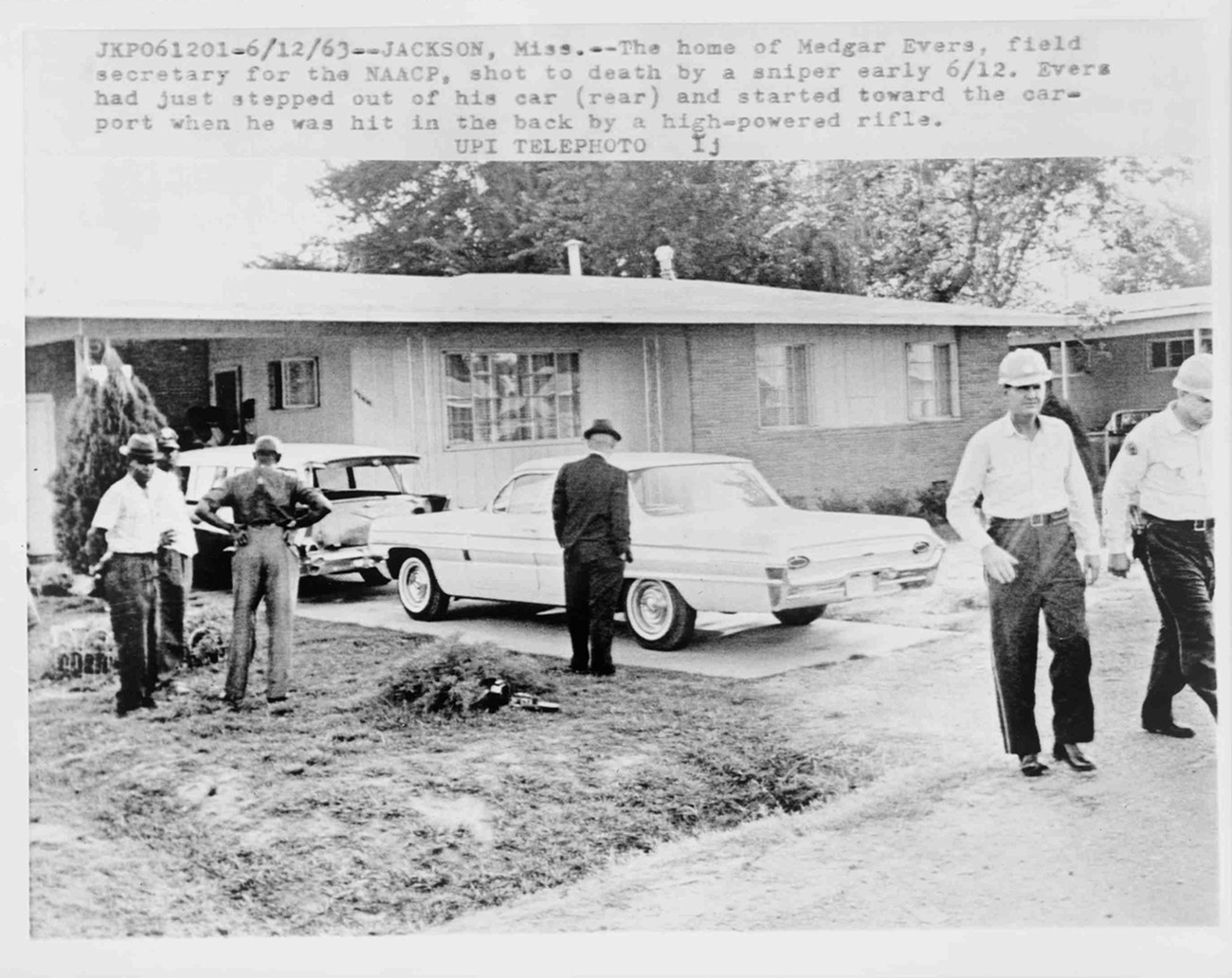
Library of Congress On June 11, 1963, President John F. Kennedy spoke to the nation in a televised address from the Oval Office. “The Report to the American People on Civil Rights” called on all Americans to reject the idea of the inequality of races by asking Congress to enact legislation addressing the long-delayed implementation of the Brown vs. Board of Education desegregation decision. “It ought to be possible…for every American to enjoy the privileges of being American without regard to his race or color,” Kennedy said. Medgar had called from the office that day, encouraging Myrlie to watch the address. He would not be home to watch it with her and their children. It was another late night of organizing and attending meetings. His role as secretary for the Mississippi NAACP field office kept him endlessly busy. Medgar returned home just after midnight. Myrlie and the children had waited up and were watching TV together. They heard Medgar’s car in the driveway. Then they heard a shot. The children immediately responded as they had practiced—they fell to the ground and made their way to the bathroom. The older children helped 3-year-old James into the safety of the big tub, before joining the adults outside. Meanwhile, Myrlie stepped into the carport to find her husband collapsed and bleeding, clutching t-shirts he had carried from the car. They said “Jim Crow Must Go” on them. He had been shot in the back. In the ensuing chaos, Myrlie and neighbors came to Medgar’s aid. Others called the police, who arrived in minutes. The children called for their Daddy. Rather than waiting for an ambulance, Medgar was loaded into a station wagon raced to the hospital with police escort. Medgar Evers died at University Hospital from trauma and blood loss. ImpactGiven his public role in Mississippi civil rights, Medgar had anticipated, even expected an early death. But the nation was shocked. His murder galvanized the civil rights movement and heightened public awareness of civil rights issues. As a martyr, Medgar became a catalyst for the passage of the Civil Rights Act of 1964, which outlawed segregation in private businesses. Further ReadingFind links to President Kennedy’s address on the Multimedia page. Read more about Evers's Funeral and National Response. |
Last updated: June 10, 2024
